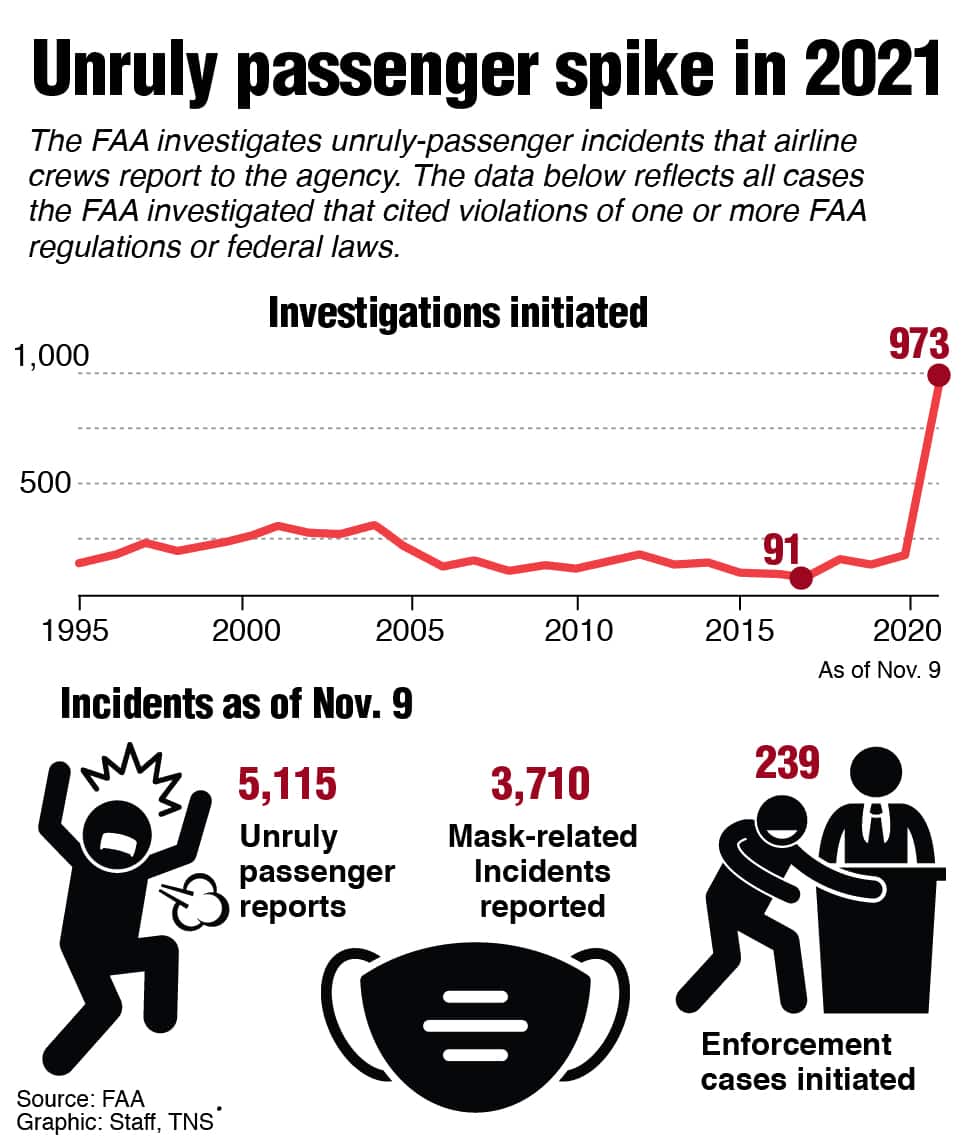Life is a series of adjustments, and boy, has the pandemic been full of adjustments. We’ve seen ups and downs in coronavirus infections, a variety of comfort levels with precautionary actions, ongoing uncertainty, rising levels of stress, and a muted return to “normalcy.” Whatever normal is now. Sadly, we’ve also seen a decrease in decency, especially toward service workers, including medical workers and staff at senior communities. When so much is out of our hands, there’s one thing we can control: showing kindness to essential workers.
The problem
The service industry is replete with anecdotes of fading common courtesies. Not only are many customers not showing kindness to essential workers, they are taking their anger out on them.
Less than six months into 2021, the Federal Aviation Administration had logged 3,000 reports of unruly passengers, the highest since they began recording such cases in 1995. A Southwest flight attendant even lost two teeth after a passenger punched her in the face. According to airline workers, such cases are more frequent and more violent.

Similar incidents have occurred at retailers and restaurants. Customers have gotten angry at lower staffing levels or out-of-stock products, even though these are both signs of pandemic fallout and not an employee’s fault. Other people have lashed out in response to pandemic restrictions, verbally or physically attacking employees who are enforcing masking or vaccination requirements. An internet search of such incidents can lead down a rabbit hole of similar reports.
Even more regrettable is the disrespect that has been shown to health care workers. The same people who were lauded at the beginning of the pandemic have faced increasing animosity from patients and families.
Harvard Business Review reported, “Refusals to wear masks, frustration with visitation policies, and racial profiling feel amplified in these times of crisis. Frontline staff, including nurses, doctors, residents, security guards, orderlies, and cleaning staff have been feeling the effects. … Patients, their families, and other caregivers have little patience or tolerance, and their short fuses can explode on the very people trying to care for them.”
The Crisis Prevention Institute cited two reports on lack of civility to health care workers. CPI cited the Journal of the American Medical Association (JAMA), which stated in an April 2021 article that “attacks against health care workers – already frequent targets for physical and verbal assaults – have evolved during the COVID-19 era.”
CPI also cited a nationwide survey of more than 150,000 registered nurses. The fall 2020 survey by the National Nurses United found that “about 20 percent of nurses report facing increased workplace violence on the job, which they attribute to decreasing staffing levels, changes in the patient population, and visitor restrictions.”
So what?
These consequences of this behavior goes deeper than lack of civility.
As the Crisis Prevention Institute notes, “Failing to implement and sustain a culture of safety for nurses guarantees needless risk to patients, staff, and hospitals.”
Senior nursing homes and other long-term care facilities have seen the exodus of more than 420,000 employees in the two years after the pandemic hit the United States. A short-staffed facility can mean lower quality of care for patients – which may include you or your loved one.
Kindness to essential workers: a solution we all can implement
Patients and their families, in senior communities and all health care settings, can do their part to combat this problem by adjusting our behavior to be more thoughtful.
We can:
- Smile!
- If a worker makes you angry, take a deep breath and consider:
o This person is probably also under stress, either at work or at home, including other pandemic-related problems such as childcare issues, family illness, financial challenges, etc.
o Most of the time, the person enforcing rules isn’t the one making them.
o Much of the time, the rules are there for a reason (even if we don’t agree). - Be kind and generous in sharing your kindness to essential workers. In a recent post on Seniors Guide, writer Steve Cook suggested six tips to care for caregiving staff, including expressing gratitude, commending a worker to management, and sharing tangible tokens of appreciation.
- Know that hostility usually doesn’t accomplish anything anyway. Like the old parable of the wind and the sun, who were competing to remove a traveler’s jacket – the wind’s strong-armed attempts to blow off the jacket were unsuccessful, while the sun’s gentle beam of warmth achieved the goal.
- Remember that being kind turns the feeling of warmth back on ourselves.
- Smile! Yes, this bears repeating! Not only does smiling send positive vibes to the other person, it can make you feel measurably better, too!
As we spread kindness to essential workers in a health care setting, we can even help improve the care that we and our loved ones will receive. But there’s no need to wait. Start by practicing kindness wherever you are.
